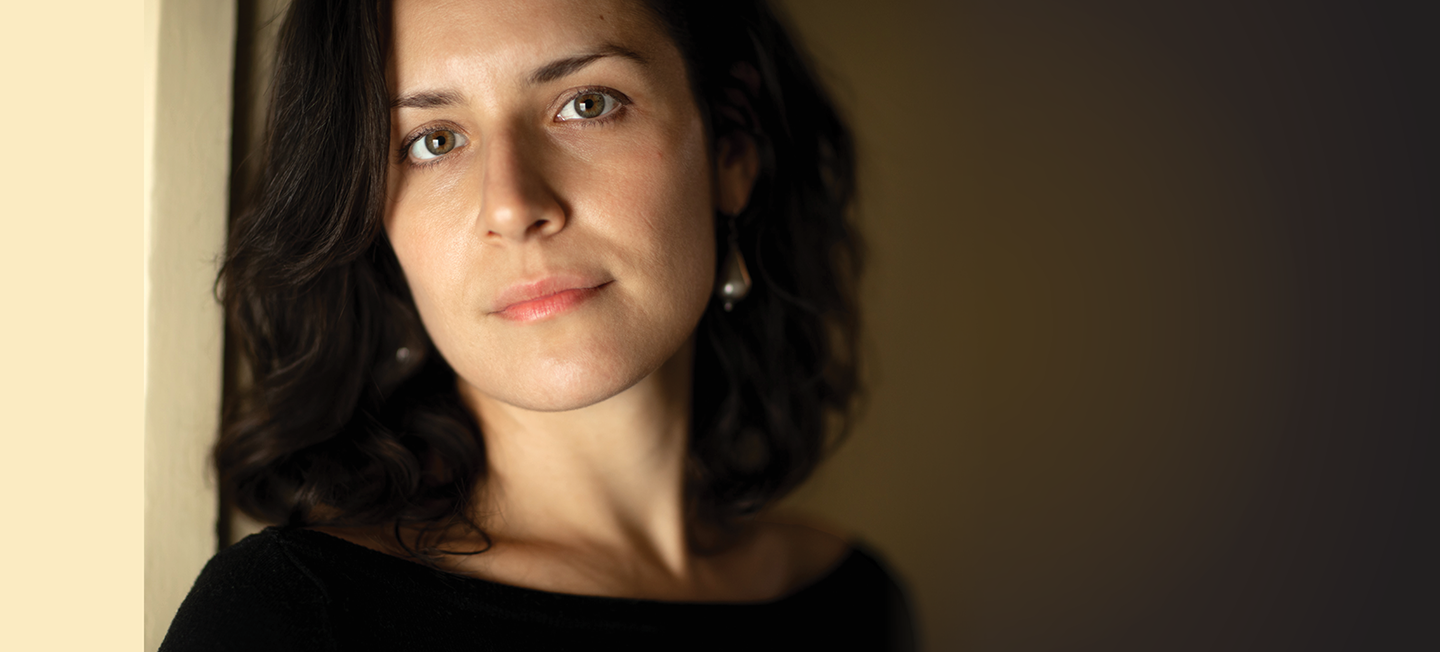An Article of Faith
Sofie Isenberg used a Pulitzer Fellowship to explore the ties between religion and well-being in the face of the pandemic

When Sofie Isenberg applied for a prestigious Pulitzer Center Reporting Fellowship in April 2020, she had big plans. The pandemic was still in its earliest days and she pitched the idea of driving across the country to report on the mental health impacts of COVID-19. By the time she was named just one of 40 fellows two weeks later, the United States was largely locked down.
“I very quickly decided that was not something I felt ethically able to do,” says Isenberg (’22) of her original on-the-ground angle.
Stuck at home with a reporting fellowship, but nothing to report on, she—like so many other people—fell into “a big empty hole,” experiencing symptoms of depression and anxiety as life tumbled out of her control. At one point, Isenberg started wondering how others were coping, particularly people of faith.
The seed of a new story took root. Isenberg’s curiosity prompted her to reach out to faith organizations and researchers. When a Muslim advocacy group pointed her toward a global study showing Muslims were holding up better than most others, the seed sprouted. Over the next few months, she spoke with people of different faiths (or none)—Christians, Muslims, Hindus, Wiccans—as well as scholars, sociologists, mental health experts and neuroscientists. “It just blew up into this giant project,” says Isenberg.
In March 2022, the Sunday Long Read published Isenberg’s article, titled “Spirit Matters.” The 5,200-word article explored why, “on average, religious and spiritual people tend to experience better mental health, even in the midst of a pandemic.”
Despite their different backgrounds and traditions, Isenberg says many of the people she spoke with shared common traits that helped them stay spiritually healthy throughout the pandemic. Their religious practices gave a routine and rhythm to their days, while their faith gave them a strong sense of what they could control in their lives—and what they couldn’t.
Before focusing on journalism at COM, Isenberg studied religion and literature at the University of California, Berkeley, and anthropology and cognition at the London School of Economics, later working for the UN’s Food and Agriculture Organization.
“I was aware of the fact that being really active in your community and giving is good for your health and your mental health,” says Isenberg, who switched to journalism to tell stories that could shape the conversation on topics she cared about.
Although the Pulitzer fellowship would typically bring funding for international travel, seminars in Washington, D.C., and training opportunities, Isenberg says the Zoom-era replacements—online conferences to share projects, expert lectures filled with industry advice—were still insightful. And the story itself has had a big personal impact, helping drag her out of that empty hole. She hopes her work helps broaden the discussion around mental health, moving it beyond medical and talk therapy interventions.
Stuck at home with a reporting fellowship, but nothing to report on, she—like so many other people—fell into “a big empty hole,” experiencing symptoms of depression and anxiety as life tumbled out of her control. At one point, Isenberg started wondering how others were coping, particularly people of faith.
“I went on a journey of discovery and found all this really interesting research and spoke to all these wonderful people,” she says. Her findings also showed how “to think more deeply about our relationship to our sense of control and the world, how we can modify that, train ourselves to think a little differently.”
With her graduate studies at a close, Isenberg is now working as an associate producer on a new PRX podcast, How God Works. She’s also collaborating with animator Gemma Green-Hope on a documentary—supported by a Ffilm Cymru Wales and BBC Wales preproduction grant—about premenstrual dysphoric disorder.
“I’ve always been interested in people,” says Isenberg, “why they do the things they do, how to make life better.”


